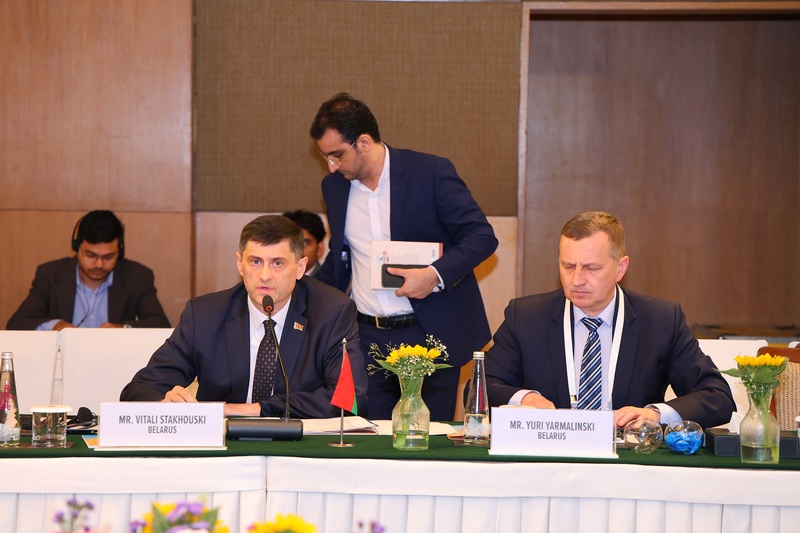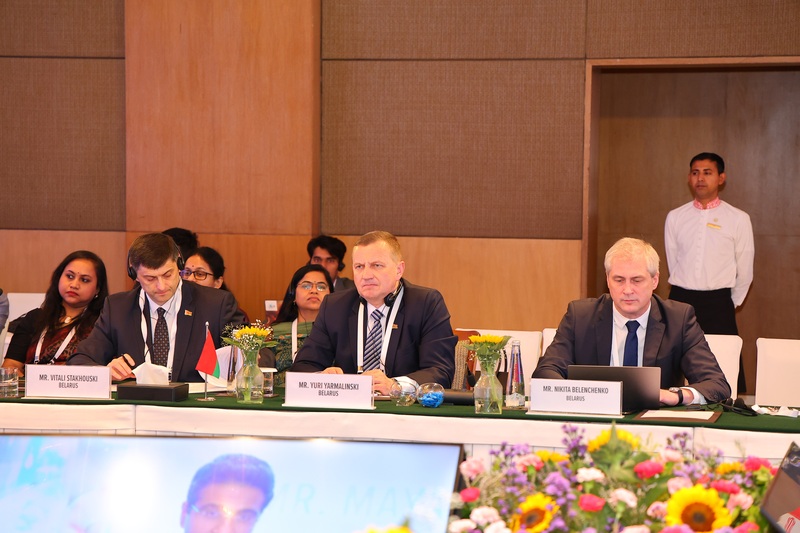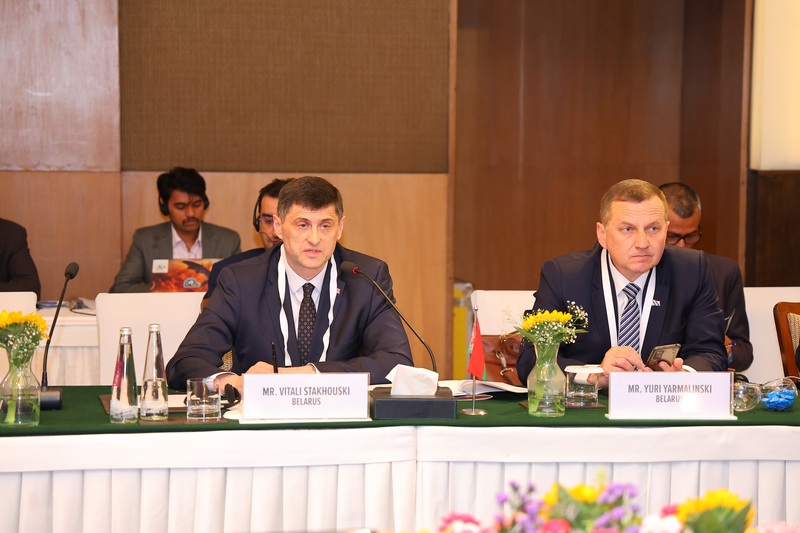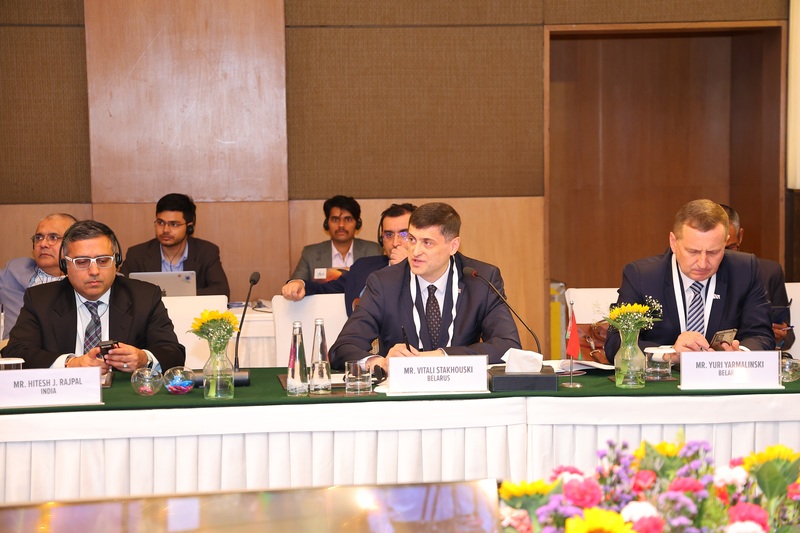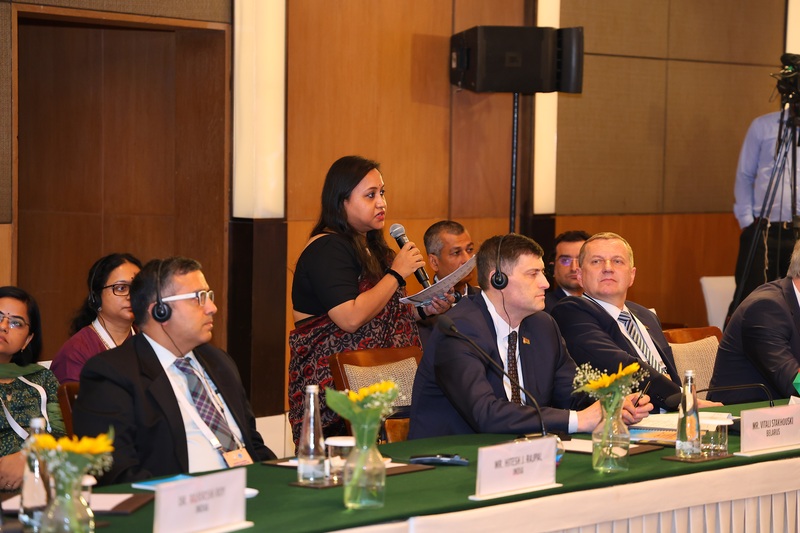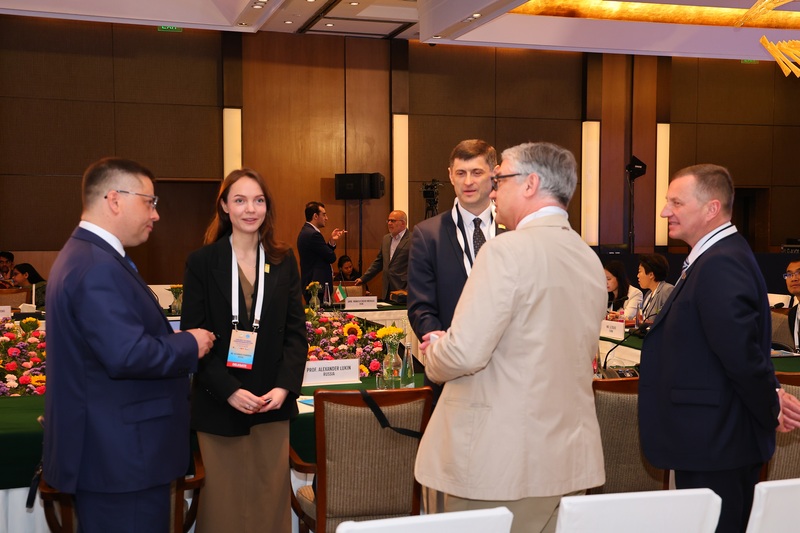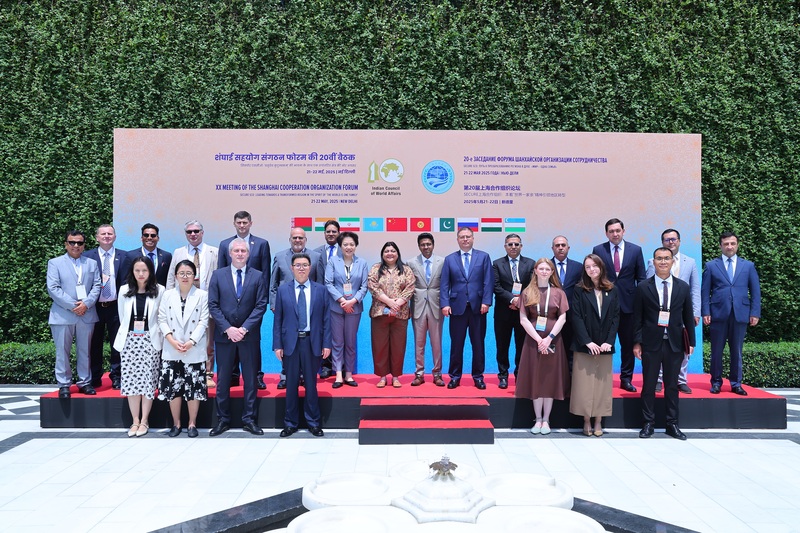Yuri Yarmolinsky, Deputy Head of the Foreign Policy Department of the Belarusian Institute of Strategic Research (BISR), Head of the SCO and BRICS Research Center, shared his impressions of participating in the 20th anniversary meeting of the Shanghai Cooperation Organization (SCO) Forum held in New Delhi on May 21-22, 2025 under presidency of the Indian Council of World Affairs.
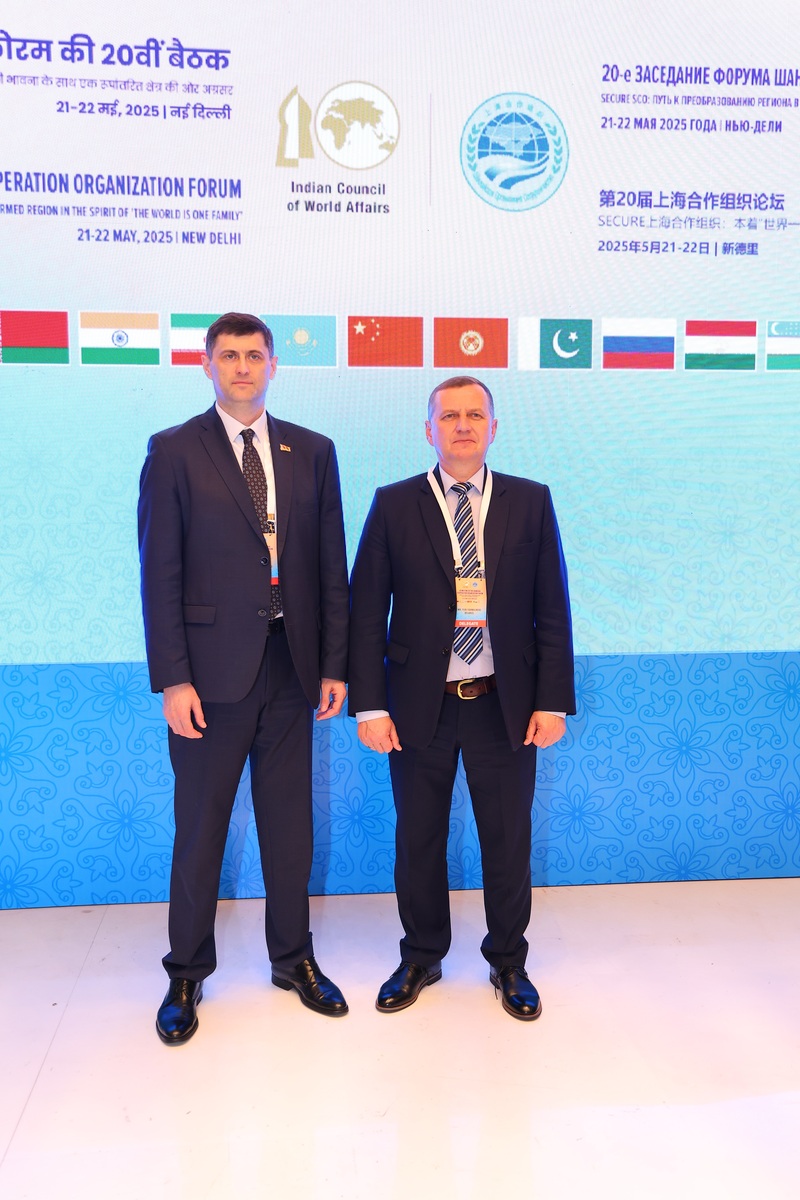
It should be noted that the semantic content of the working sessions of the XX meeting of the SCO Forum traditionally reflects the extensive multifaceted agenda and basic priorities of the Organization itself.
1. The theme of strengthening the role of the SCO as a significant international organization is considered through the optics of the concept of a collective vision for the safe and stable development of the Greater Eurasia region.
The SCO's adaptability is noted when the organization develops in harmony with the peculiarities and dynamics of the regional and global situation, while remaining attractive to new members. At the same time, emerging problems are solved conflict-free by developing coordinated strategies and diverse mechanisms.
The axiom has been confirmed that the core of the SCO is Central Asia, whose system-forming role in the organization is being strengthened through the expansion of interregional cooperation in the fields of economics, politics, security, culture and infrastructure.
At the same time, security threats, especially the “three evils” of terrorism, extremism and separatism, are a significant obstacle to creating a favorable regional environment. To overcome them, it is proposed to strengthen regional cooperation in developing de-radicalization strategies. Additional risks are created by drug and arms trafficking, money laundering and cybercrime, and other types of transnational organized crime, which requires resolute collective measures and an adequate response.
Natural and man-made disasters actualize the need to expand cooperation in providing humanitarian assistance in solidarity, eliminating the consequences of emergencies and other natural disasters.
2. The meeting participants agreed that in order to ensure sustainable development in the SCO space, it is necessary to maximize the synergy of comparative advantages, as well as trade, investment and economic potentials of the Member States.
Sustainable growth in the SCO region is also achievable through addressing energy, food security issues, and improving the reliability of supply chains and financial transactions. It is important to boost the transit and transport framework to stimulate mutual trade, counteract protectionism and use it as an instrument of pressure.
Technologies and the digital economy are positioned as a system-forming element of secure development in the SCO space, which implies the widespread use of artificial intelligence and the creation of an end-to-end digital public infrastructure. In this regard, expanding cooperation in the field of digital transformation, joint ICT solutions, ensuring digital financial accessibility, supporting startup ecosystems, as well as knowledge sharing and capacity building are of key importance.
Traditional medicine, in which individual Member States (for example, India and China) have significant experience and competencies, can serve as an effective solution to health problems in the SCO region.
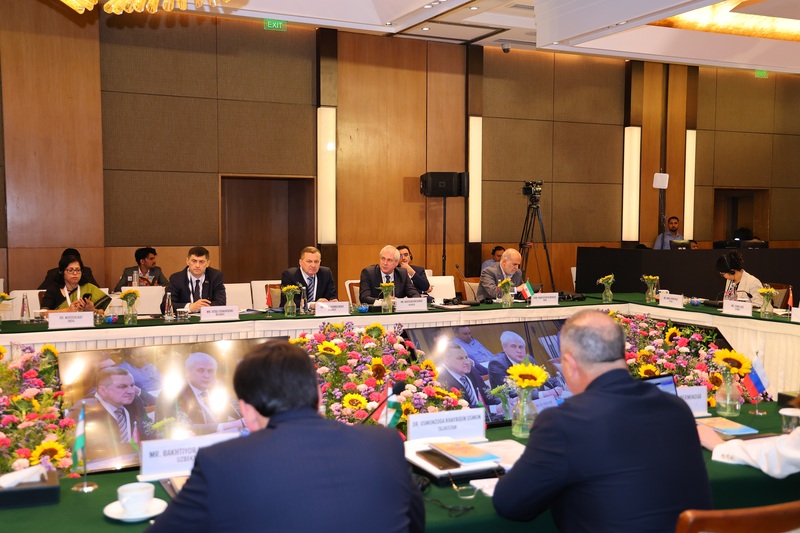
3. The cultural and humanitarian track has been and remains the most important areas of activity and cooperation in the SCO.
It is noted that the Organization is a common home for many ethnic and religious groups, traditions, life philosophies and strategies. In this regard, the importance of a common understanding of such values was emphasized. To do this, it is necessary to promote interactive cultural events and projects, such as symposiums of historians/philosophers/poets, as well as other intercultural exchanges.
Since every national culture (tradition) in the SCO is a “great repository of wisdom,” efforts should also be made to make cultural heritage accessible to a wider audience. In this regard, the Indian side has once again proposed adding English as the official language of the SCO in order to improve such communication. Other mechanisms of humanitarian cooperation include educational and scientific exchanges, tourism, including medical tourism, and increased participation of women, entrepreneurs, and media representatives.
Expert diplomacy is also named among the important tools of the humanitarian track, the base of which is the SCO Forum, the role and effectiveness of which is increasing.
The Belarusian delegation made a number of practice-oriented proposals aimed at further improvement and development of the SCO Forum mechanism. They take into account the theses of Secretary General Nurlan Yermekbayev, who during his visit to the BISR in January 2025 expressed the SCO Secretariat's interest in more active and applied expert support from National Research Centers of the Member States, as well as think-tank structures of dialogue partners and observers. We hope they will be in demand.
The draft Concept of SCO Expert Diplomacy, developed by BISR with the participation of colleagues from the Center for International Studies of the Faculty of International Relations of the Belarusian State University, has also been proposed for consideration by the partners. This is a kind of attempt to systematize, structure and institutionalize the role of the SCO expert and analytical community, as well as to emphasize the role and place of National Research Centers as major players in the field of expert diplomacy.
Thus, the BISR has made its debut as a National Research Center at the SCO Forum. There are many interesting joint projects and events ahead of us, which will contribute to the further, deeper integration of our Institute into the expert community in the Organization's space.
problems in the SCO region.


